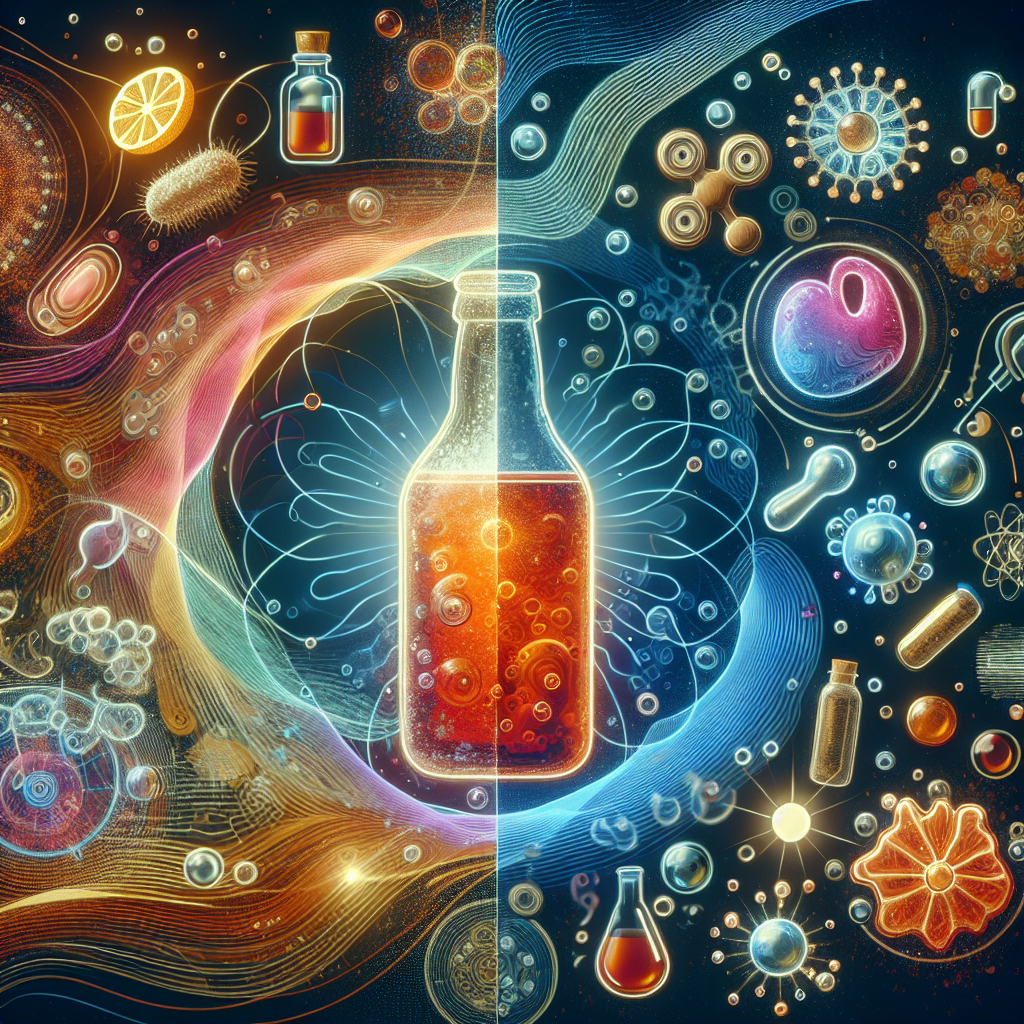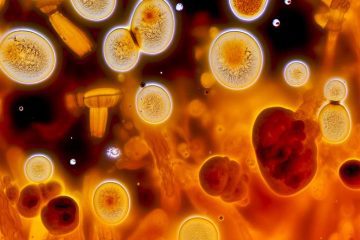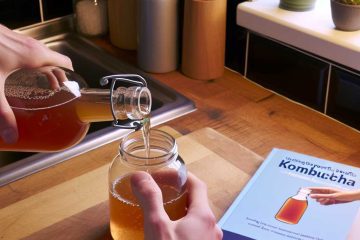Is Kombucha Really Alcoholic? Debunking the Myths

Is Kombucha Really Alcoholic? Debunking the Myths
Kombucha has taken the health and wellness world by storm in recent years, gaining popularity for its unique flavor, potential health benefits, and purported alcohol content. But just how alcoholic is this fizzy fermented tea, and is it something to be concerned about? In this article, we’ll debunk the myths surrounding kombucha and alcohol, and provide you with the facts you need to make an informed decision about incorporating this popular beverage into your lifestyle.
What is Kombucha?
First, let’s start with the basics. Kombucha is a fermented tea that is made by adding a symbiotic culture of bacteria and yeast (SCOBY) to a mixture of brewed tea and sugar. This mixture is left to ferment for a period of time, resulting in a slightly effervescent, tangy beverage that has been enjoyed for centuries in various cultures around the world.
The fermentation process produces a range of organic acids, amino acids, vitamins, and enzymes, which are said to have potential health benefits. Kombucha is often touted as a natural source of probiotics, which may promote gut health, as well as antioxidants, which can help protect the body from harmful free radicals.
The Alcohol Content of Kombucha
One of the most common concerns surrounding kombucha is its alcohol content. Kombucha is indeed a fermented beverage, and as is the case with all fermented foods and drinks, a small amount of alcohol is produced during the fermentation process.
The alcohol content of kombucha can vary depending on a number of factors, including the length of fermentation, the temperature at which it is brewed, and the specific yeast and bacteria present in the SCOBY. Generally, commercially available kombucha contains less than 0.5% alcohol by volume (ABV), which is the legal limit for a beverage to be considered non-alcoholic in the United States.
To put this into perspective, most commercially available beers have an ABV of around 4-6%, while wines typically range from 12-15% ABV. In comparison, the alcohol content of kombucha is extremely low, and for the vast majority of people, the amount of alcohol in kombucha is unlikely to have any noticeable effects.
Debunking the Myths
Despite the low alcohol content of most commercially available kombucha, there are still some persistent myths and misconceptions that surround this trendy beverage. Let’s take a closer look at some of the most common myths about kombucha and alcohol, and debunk them once and for all.
Myth #1: Kombucha is just as alcoholic as beer or wine.
As we’ve already discussed, the alcohol content of kombucha is significantly lower than that of beer or wine. Commercially available kombucha typically contains less than 0.5% ABV, while beer and wine can contain anywhere from 4-15% ABV. While it’s true that the alcohol content of home-brewed kombucha can vary and may sometimes exceed the 0.5% limit, the vast majority of store-bought kombucha is well within the legal limits for a non-alcoholic beverage.
Myth #2: Drinking kombucha will make you feel tipsy or intoxicated.
Given the low alcohol content of kombucha, it is highly unlikely that drinking this beverage will make you feel even remotely intoxicated. To reach the equivalent alcohol content of a single beer, you would need to drink a significant amount of kombucha, far more than any reasonable person would consume in one sitting. It’s important to remember that the alcohol content of kombucha is minimal and should not cause any noticeable effects in the vast majority of consumers.
Myth #3: Kombucha is unsafe for pregnant women and children due to its alcohol content.
While it’s always important for pregnant women and children to be mindful of what they consume, the alcohol content of commercially available kombucha is so minimal that it is generally considered safe for consumption during pregnancy and by children. However, as with any food or beverage, pregnant women and parents should exercise caution and consult with a healthcare professional before incorporating kombucha into their or their child’s diet.
Navigating the Controversy
Despite the low alcohol content of most store-bought kombucha, there have been instances where certain brands have been found to exceed the legal limit of 0.5% ABV. In some cases, this has led to recalls and regulatory scrutiny, causing concern among consumers about the safety and alcohol content of kombucha.
It’s important to note that these instances are relatively rare, and the vast majority of commercially available kombucha is well within the legal limits for non-alcoholic beverages. Nevertheless, if you have any concerns about the alcohol content of kombucha, or if you have specific dietary or health considerations, it’s always best to consult with a healthcare professional to get personalized advice.
Making an Informed Choice
In conclusion, kombucha is a unique and flavorful beverage that has gained popularity for its potential health benefits and distinctive taste. While it is true that kombucha is a fermented drink that contains a small amount of alcohol, the vast majority of store-bought kombucha is well within the legal limits for non-alcoholic beverages, and the alcohol content is unlikely to have any noticeable effects for most consumers.
As with any food or beverage, it’s important to consume kombucha in moderation and to be mindful of individual health concerns and dietary restrictions. If you have specific questions or concerns about the alcohol content of kombucha, it’s always best to consult with a healthcare professional for personalized advice.
Ultimately, the decision to incorporate kombucha into your diet is a personal one, and it’s important to weigh the potential benefits and risks while making an informed choice. Whether you’re looking to tantalize your taste buds with a unique beverage or hoping to reap the potential health rewards, understanding the facts about kombucha and alcohol is essential for making a well-informed decision that aligns with your lifestyle and preferences.
[elementor-template id=”430″]
[elementor-template id=”433″]




0 Comments